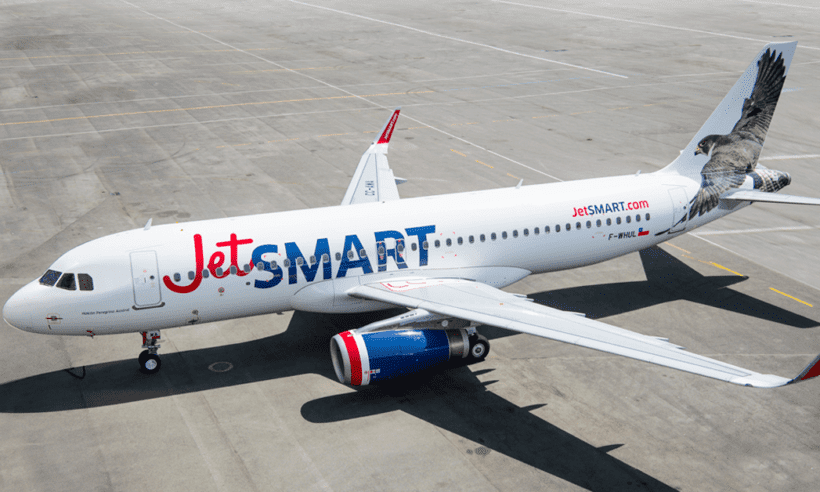Jetsmart, Latam Want More Protections In Case Of Avianca – Viva Resurrection
Chilean airlines Latam and Jetsmart have both issued statements in the past day reiterating their concerns over what an Avianca – Viva merger might mean for domestic competition in Colombia’s convulsing domestic aviation market. These come as Avianca has stated that it is willing to purchase and restart Viva if the Colombian government makes certain concessions.
Both airlines state that a concentration of prime slots (landing and takeoff rights, and access to boarding gates) at Bogotá’s overcrowded El Dorado International Airport would be bad for passengers, bad for competitive pricing, and bad for competition in the Colombian aviation market. Presumably it would be bad for competing airlines as well, as Avianca or its holding company would directly control slots during prime hours.
Not only does this mean that business travelers to Bogotá from around Colombia, who when possible fly in and out within 24 hours, would limit their choices to Avianca-controlled slots, but competing airlines would find it difficult to schedule connections through Bogotá: for example, a passenger flying from Cali to Riohacha, while connecting through Bogotá would not be able to enjoy reasonable connection times on airlines other than Avianca, or possibly an Avianca-controlled Viva.
Jetsmart today issued a statement regarding the matter stating (translated by Finance Colombia):
As an interested third party and after a detailed analysis of the consequences that the integration of Avianca and Viva Air may have on the market and users, Jetsmart filed an appeal with the Colombian Civil Aeronautics Authority (Aerocivil).
Without prejudice to sharing the position taken by Aerocivil, while the entity ordered conditions to the transaction, Jetsmart presented the appeal in question, on the understanding that these conditions do not fully mitigate the damages that the integration of Avianca and Viva Air may cause for the market and especially for new entrants.
In line with the above, Jetsmart:
-
-
-
- Insists on the need for Aerocivil to regulate the reallocation of slots (take-off and landing rights) in order to guarantee the competitiveness of the sector, since allocating slots is equivalent to allocating market shares, especially at El Dorado Airport in Bogotá.
- It is important that access to slots to take place on a timeline and form that allows new operators to access the bands of greatest demand, thereby strengthening competition and supply to users.
- It emphasizes the need for Viva Air to return all the slots assigned to it prior to its cessation of operations.
-
-
Latam issued a statement stating (translated by Finance Colombia):
Based on the decision of the Civil Aeronautics of Colombia to approve the integration of Avianca and Viva Air with conditions, Latam Airlines Colombia carried out a rigorous analysis of the decision to understand its scope and effects in the Colombian market.
As a result of this analysis, we see that the authority made progress in establishing some measures, aimed at protecting the passengers affected after the suspension of Viva Air operations on February 27.
Despite the above, Latam Airlines Colombia considers that still in the conditioning of slots (takeoff and landing slots) at El Dorado Airport it is necessary to define some criteria and elements in such a way that inefficiencies are not generated in their use, which could reduce the effectiveness of this measure as a remedy for the anti-competitive effects of integration. To this extent, the company, as an interested third party, has decided to file an appeal with the objective that the aeronautical authority can take these considerations into account in a second instance of the process in such a way that the capacity of the existing infrastructure can be optimized, generating growth opportunities for other operators for the benefit of the passenger.
It is worth noting that, despite Viva Air’s suspension of operations for more than a month, this airline has not yet formally returned the slots at El Dorado Airport to the aeronautical authority. In this sense, to date there has been no reassignment of structural slots to other air operators.
At the same time, Latam Airlines Colombia will continue its work to offer connectivity alternatives for the country as it has been done up to now. In this sense, as a result of the situation in the aviation sector, five Airbus 320 aircraft were incorporated, representing an additional 210,000 seats per month and a 20% increase in the supply in the Colombian market. Likewise, it has hired 220 Viva Air workers, including pilots, cabin crew and maintenance technicians, who today are already attending to the additional capacity that Latam Airlines Colombia incorporated into the country.
This new offer has been oriented to attend to the cities with the greatest impact and that have special relevance for the tourist activity of the country, such as San Andrés, Santa Marta, Cartagena and Pereira. Along the same lines, on March 28, [Latam’s] Bogotá-Riohacha route began operations with seven flights a week. In addition, a new offer has been generated for the business tourism segment, key to the country’s economic activity, in cities such as Medellín, Barranquilla, Cali and Bucaramanga.
Specifically in San Andrés, in addition to the Latam Airlines Colombia operation of nine daily passenger flights to the Island, Latam Cargo Colombia made eight flights during the month of March with a Boeing 767 cargo plane, which transported more of 97 tons of supplies, with a view to meeting the island’s supply needs at this juncture.
Regarding the situation of the sector, Santiago Álvarez, executive director of Latam Airlines Colombia, maintains that “these have been turbulent times for the Colombian airline industry. However, the ability and decision of operators such as Latam Airlines Colombia to protect the connectivity of Colombia and maintain alternatives to the consumer was demonstrated.”

























